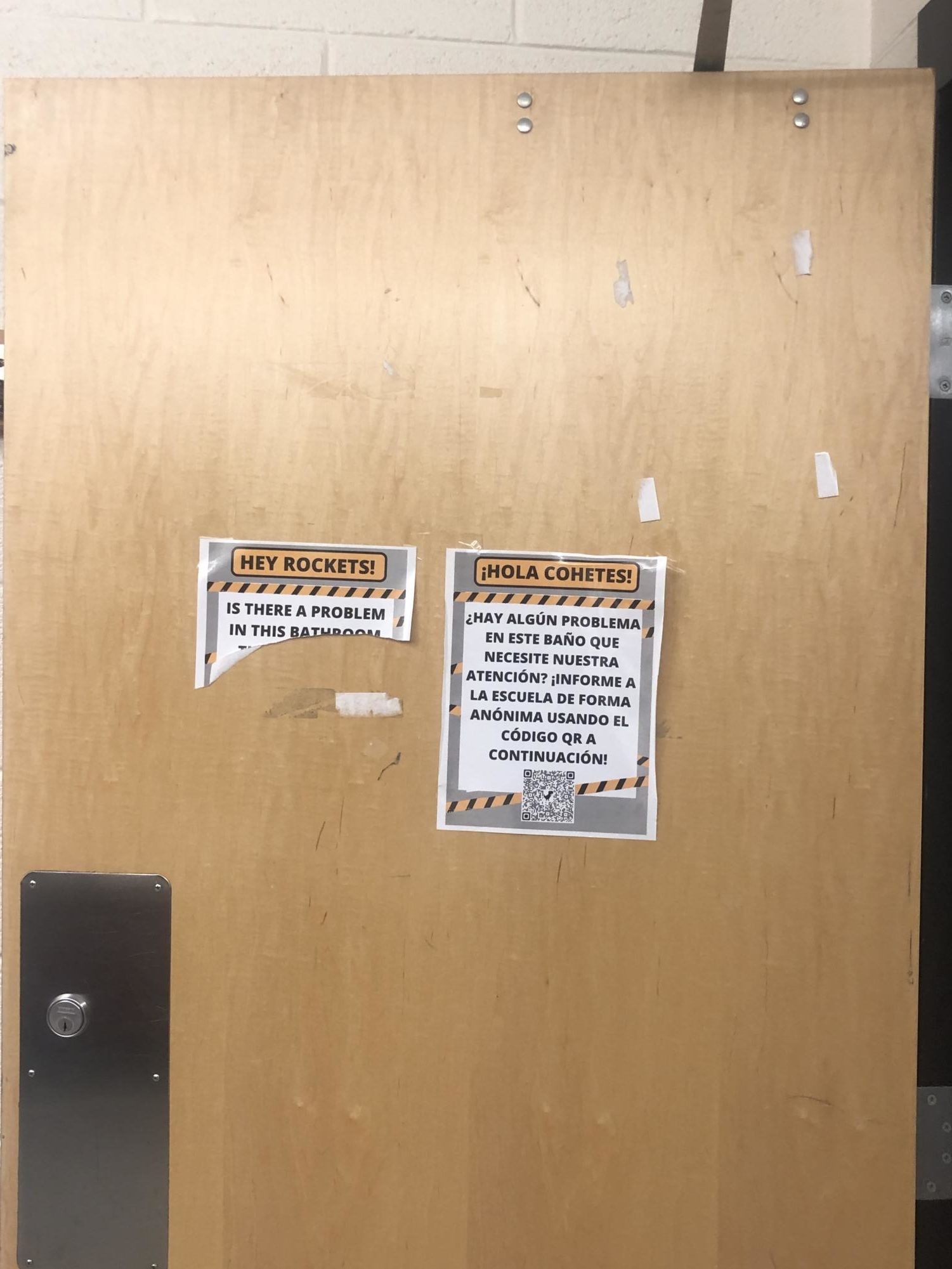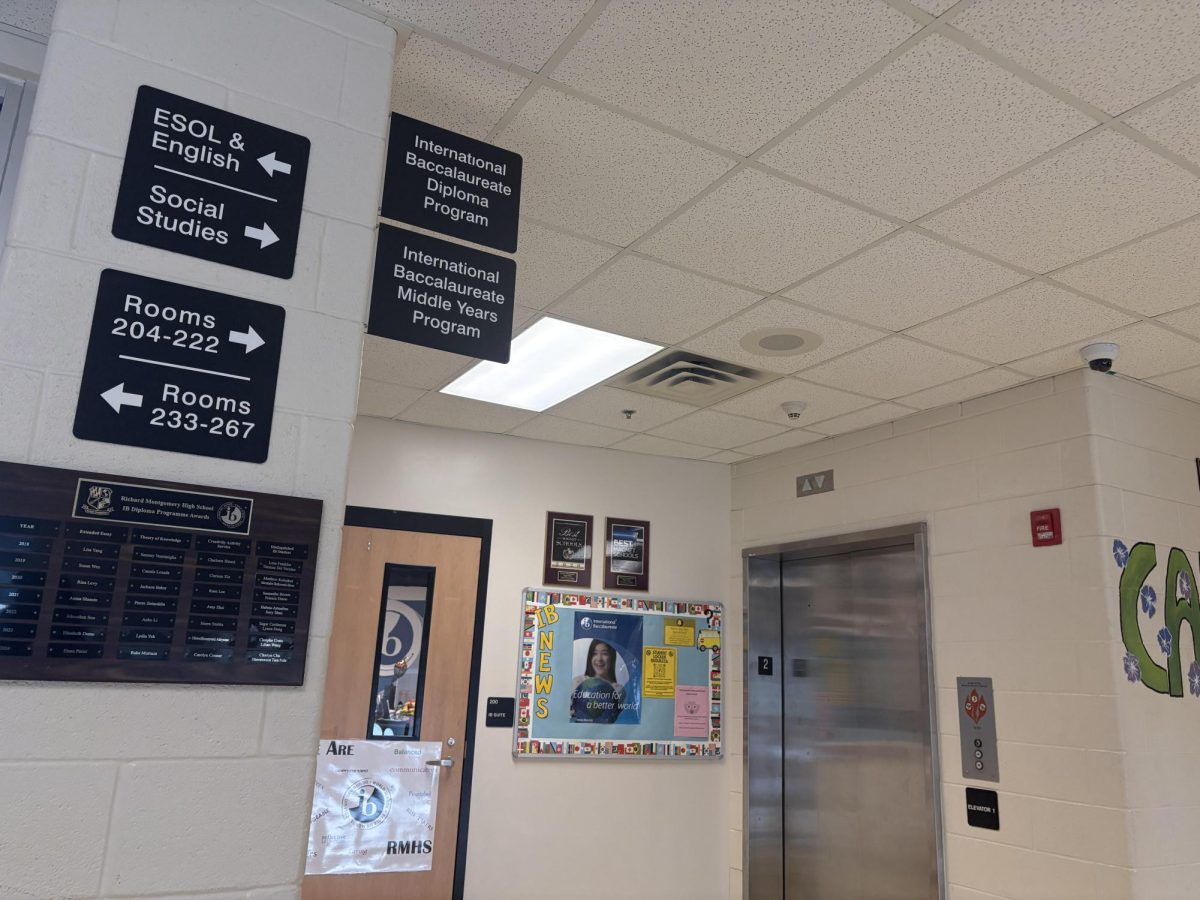During the week of May 2, Richard Montgomery High School, along with Kennedy, Northwood, Paint Branch, Quince Orchard and Whitman High Schools had vape detectors installed in student bathrooms. In addition, MCPS began enforcing a Student Restroom Monitoring Plan, in which staff members frequently check bathrooms and limit access to specific bathrooms. The detectors work by sending a text and/or email to the specific school’s designated staff member, if fumes are detected.
This is a pilot program, so the devices themselves are being leased or donated. The number of sensors per school is not specified.
Vaping is a significant problem for teenagers. About 14% of teens say they have vaped in the past month, and that number is only increasing. Vape companies deliberately target teens in their advertisements, especially when they advertise fruity flavors.
The dangers of vaping have become common knowledge between students. Sophomore Gwyneth Gibson said, “I think [vaping is] bad for your health and I don’t really see a point in doing it.” Some common side effects of vaping include coughing, shortness of breath, headaches and more. More than that, the brain continues developing until age 25. A developing brain is much more susceptible to addiction. Vapes contain an addictive substance known as Nicotine, which keeps kids coming back to buy more.
Vapes also serve as a gateway drug to regular cigarettes. Health teacher Ms. Barbara Contino said, “Vaping is harmful to your body, it’s addictive, it’s hard to stop… it can lead to you either vaping or smoking later on in life.” People who may never have smoked now do so because of vaping, which can cause many different types of cancer and have led to more than 480,000 deaths a year. Vaping is killing kids, so it is a good thing that Montgomery County is trying to step in before it is too late.
In addition, many strange chemicals have been found in vapes. These include fireworks, nail polish remover, paints, pesticides and more. While not every vape contains these chemicals, it is still a risk taken anytime a person vapes.
MCPS has fairly strict policies regarding vaping. Vapes are prohibited on MCPS campuses and are treated like tobacco/cigarettes if found. Students can be suspended and given a civil citation if a vape is found in their possession.
If vaping is so bad, there should be no further debate around vape detectors. However, this is not the case. There are three major issues with vape detectors; accountability, disruptiveness and their functionality.
When the vape detectors go off, a staff member gets a text. But by the time someone can investigate the incident, the students vaping would most likely have left the bathroom. Ms. Contino said, “As far as vaping detectors, I think it’s a wonderful idea to have them at school, but they need to have consequences when the vaping detectors go off.” Students should know what the outcomes of being caught by vape detectors are.
Secondly, the vape detectors have caused classes to halt. Sophomore Clara Charpentier said, “[The vape detector] was really loud. I was definitely distracted [during class].” If a staff member is already notified when a vape detector goes off, they don’t need to be insanely loud. They definitely should not be at a volume where a student can’t focus in class.
Finally, the vape detectors may not completely work. Charpentier said, “I think [it malfunctioned.] I don’t know what happened in the bathroom, but it just started going off for a long time and it was really loud.” While there is no concrete evidence of vape detectors malfunctioning, there are multiple reported incidents of them giving false positives, which means the reports can be assumed as invalid.
At the end of the day, the installation of vape detectors at RM is a good idea. However, not every outcome of the vape detectors is quite so good. Hopefully, these imperfections will quickly be fixed, allowing RM to become a healthy, safe community for staff and students.







